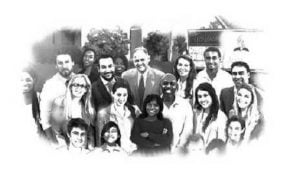A Royal Priesthood – Teaching Plan
Key Thought: Peter refers to the Christians as a holy nation, God’s own people. By doing so, he is taking covenant language that referred to ancient Israel and applying it to the New Testament church.
1. Have a volunteer read I Peter 2:1-4.

Image © Lars Justinen Goodsalt.com
a. Ask class members to share a thought on what the most important point in this text is.
b. What is Peter talking about how we should live?
c. Personal Application : How important is attitude in regard to our actions and our relationship with God? Share your thoughts.
d. Case Study : One of your relatives states: “I don’t see how reading the Bible can change people’s actions and attitudes. What does it mean to desire the milk of the Word?” How would you respond to your relative?
2. Have a volunteer read I Peter 2:9,10.
a. Ask class members to share a short thought on what the most important point is in this passage.
b. What does Peter mean by calling Christians a royal priesthood and a holy nation?
c. Personal Application : Do I make the study of God’s Word a priority in my life? How can I make it a priority? Share your thoughts.
d. Case Study : One of your friends states, “As members of a royal priesthood, what sacrifices, in a spiritual sense, are we to offer to God day by day? How do they glorify God?” How would you respond to your friend?
3. Have a volunteer read Exodus 24:7,8.
a. Ask class members to share a short thought on what the main idea of this text is.
b. What kind of covenant relationship do we, as New Testament Christians, enter into with God? Is there a New Covenant?
c. Personal Application: What does it mean to you to be in a covenant relationship with God? What obligations does this relationship place on you? Share your thoughts.
d. Case Study: One of your neighbors states, “Why would Moses sprinkle the blood of the covenant on the people? I thought blood was sprinkled on the horns of the altar in the sanctuary and in the courtyard and poured out at the base of the altar of burnt offering. Why does Moses sprinkle it on the people?” How would you respond to your neighbor?
4. Have a volunteer read I Peter 2:5.
a. Ask class members to share a short thought on what the main idea of this text is.
b. What does it mean to offer up spiritual sacrifices? How do Christians do that in community?
c. Personal Application : In what ways are we fulfilling the purposes for which God has called us for as “living stones” and a royal priesthood? Share your thoughts.
d. Case Study : Think of one person who needs to hear a message from this week’s lesson. Tell the class what you plan to do this week to share with them.
Truth that is not lived, that is not imparted, loses its life-giving power, its healing virtue. Its blessings can be retained only as it is shared.”Ministry of Healing, p. 148).
